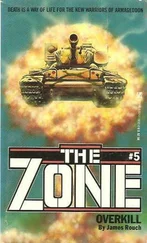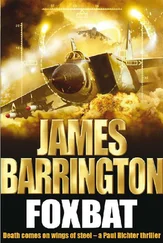Richter had been expecting a tail, of course, in view of the circumstances, but a three-tail was, he thought, something of an overkill. He walked into the lobby of the Budapesht and checked the mail rack – there would be no letters for him, but everyone staying in a hotel checks the mail rack – then turned back to the main entrance and glanced outside into the street. The two tourists were conferring, while the man with the newspaper was once again absorbed in Pravda , leaning against a wall directly across the road. Richter hoped they all had their woolly underwear on, because it looked like being a chilly afternoon.
Richter walked up the three flights to his floor, stopped at the dezhurnaya’s table to collect his room key and watched as she logged the time of his arrival, then walked down the corridor to his room. He didn’t bother trying to decide if anyone had been in there while he had been at the Embassy, and he had taken no precautions against searchers.
The room was hot and stuffy. With some difficulty Richter pushed open the single window, then tossed his hat, coat and gloves onto the bed. He picked up the accident report and the English translation, took them over to the easy chair by the window, sat down, loosened his tie and started to read. The translator hadn’t done too bad a job, only making three minor errors of little importance.
Richter read the report through twice, and was little wiser then. The only conclusion that could be drawn from the stark official phraseology was that the late Mr Newman had been either criminally irresponsible or suicidally inclined, if the facts as stated were correct. He had, it seemed, been travelling at a speed in excess of fifty miles an hour in a narrow back street when he encountered the tailboard, and totally unyielding load, of a parked lorry. Richter smiled humourlessly. Despite the official line, he knew exactly what had happened. He knew the answer, but what he didn’t know was the question. He stood up, straightened his tie, tucked the report into his briefcase, locked it and then headed downstairs towards the dining room.
Voyska IA-PVO Unit, Arkhangel’sk, Confederation of Independent States
‘Sir, both interceptors dropping back, but the missile is still closing the American aircraft,’ Privalov reported. He looked suddenly at the digital display that showed the time each missile had been running.
Kabalin noticed his glance. ‘Yes?’ he asked. ‘What is it?’
‘The AA–9, Colonel,’ Privalov said. ‘If that run-time figure is accurate, it only has fuel for another two or three minutes’ flight.’
Kabalin nodded decisively. ‘You’re right, Lieutenant. How far behind is the missile?’
Privalov spoke into his microphone, then turned back to his superior officer.
‘Interceptor Eight estimates under one mile, sir.’ Kabalin thought for a few seconds. ‘That’s not close enough,’ he said. ‘Order Interceptor Eight to monitor the missile. If it doesn’t catch the American aircraft, instruct the pilot to command-detonate the warhead the instant the AA–9 runs out of fuel.’
That order was the first mistake Colonel Kabalin had made since the Blackbird had been detected, because he had forgotten to allow for just one thing – the Foxhound pilot’s reaction time.
Aspen Three Four
Paul James suddenly let out an exclamation. ‘Yes! It’s out of fuel. Half a mile astern and five hundred below, and falling away.’
In the MiG–31, the pilot was closely watching his radar display and missile telemetry. In the second and a quarter it took him to register the fact that the missile engine had stopped, the Blackbird had travelled just over one mile. In that same second and a quarter, the AA–9 had slowed considerably and had already begun to descend under the force of gravity. It took the Foxhound pilot a further second to lift the guard on the master detonate switch, and another half-second to depress it, by which time the Blackbird was nearly three miles from the AA–9 and over one thousand feet above it.
Frank Roberts was jolted in his seat as the Amos detonated in spectacular fashion, and the Blackbird kicked upwards, then he heaved a sigh of relief. ‘Thank God. I thought that fucking missile was going to bury us. Where’s the other one?’
‘Forget it. Range is four miles, and even if you chopped our speed to three it still wouldn’t catch us before it ran out of gas.’
Voyska IA-PVO Unit, Arkhangel’sk, Confederation of Independent States
There was silence in the operations room as the Russian officers watched the radar return of the Blackbird receding rapidly towards the west.
When the telephone rang on Colonel Kabalin’s desk, he got slowly to his feet and straightened his uniform jacket before he walked over to pick up the receiver.
Thursday
Aspen Three Four
Normally Frank Roberts was able to keep a reasonable mental picture of the aircraft’s geographical position, but the evasive action and numerous turns, climbs and descents had destroyed it. ‘Paul, I’ve lost the bubble,’ he said. ‘Where in hell are we?’
Paul James turned his attention away from the radar display and made a swift check of the navigation computer. ‘Coastline at Klaipeda in a little under three minutes.’
‘Klaipeda? Where the hell’s that?’
‘North of Kaliningrad – used to be called Königsberg. We’ve been kicked a long way way south.’ Paul James went back to scanning his instruments. After a moment he spoke again. ‘Boss, we’ve got another problem. We’re losing fuel.’
‘What rate?’
‘Slow but steady – looks like around fifty pounds a minute. My guess is that one of those missile detonations ruptured a plate somewhere on the wings, and that’s popped a tank. You’re getting no handling problems?’
‘Not yet, but I’ll let you know. What are our choices?’
‘I don’t think we can make the tanker.’
‘Which tanker?’
‘Any tanker.’
In reality, the fuel leak had simply compounded the problem. The time spent at full power and the evasions forced on the Blackbird had already driven a major hole through the carefully calculated exit plan. The intention had been to maintain a high-level supersonic cruise westbound down the Gulf of Finland after leaving Russian air-space, across the Gulf of Bothnia, and over Sweden and Norway, before reducing to subsonic speed to link-up with one of two KC–135Q tanker aircraft that were already waiting in holding patterns fifty miles west of Norway’s Atlantic coast.
‘What are our options?’
Paul James was silent a moment or two, consulting the navigation computer again. ‘A rendezvous with either of the tankers isn’t advised. If the leak continues at its present rate we could make it to the southern one, but if we hit any problems with the link-up manoeuvring a flame-out is a real possibility.’ A flame-out, or engine failure, would mean a double ejection and the loss of the aircraft and, more importantly, the loss of the films and sensor records.
‘I’m not happy about a refuel, not with the leak we’ve got. Let’s put it down somewhere.’
‘We haven’t got many alternatives. We could make it to Oslo easily enough, or Bergen, but we’d have to do a lot of fast talking on the ground.’
‘Other options?’
‘Back to Britain, and take a Master Diversion Airfield in Scotland.’
‘Can we make Mildenhall or Lakenheath?’
‘Not advised. They’re right on the limit, according to the navigation computer, and we’d have to go subsonic a lot earlier. Plus there’s a lot of traffic in East Anglia and Air Traffic Control wouldn’t be able to move all of it out of our way.’
Читать дальше












